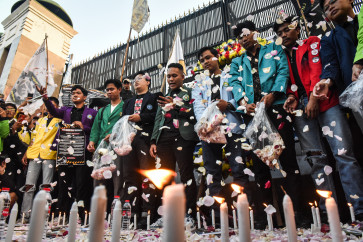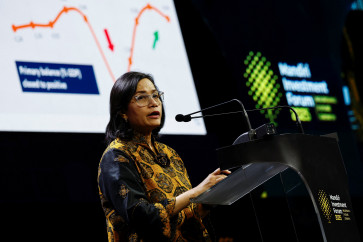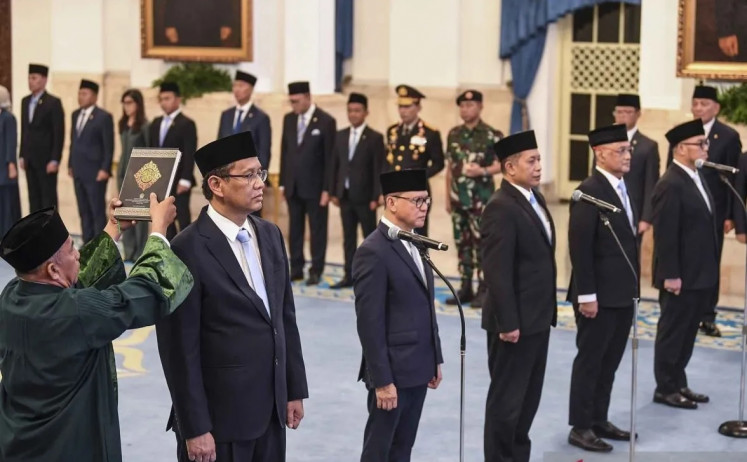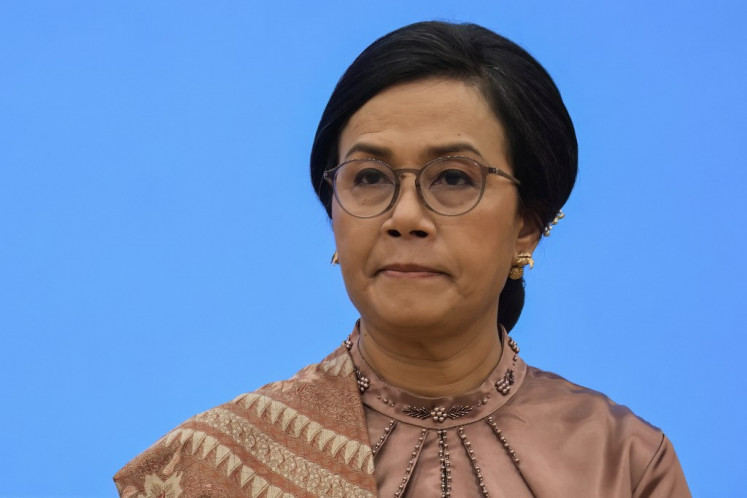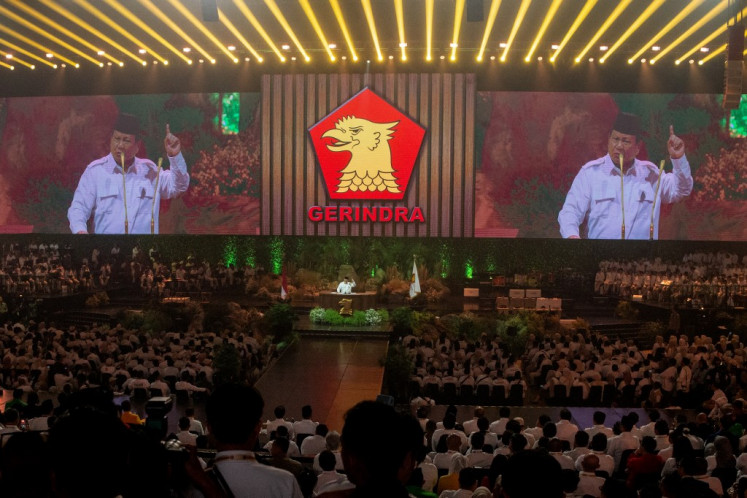Popular Reads
Top Results
Can't find what you're looking for?
View all search resultsPopular Reads
Top Results
Can't find what you're looking for?
View all search resultsUS-Australia defense ties not a threat to Indonesia
The United States Air Force has just deployed a squadron of Lockheed Martin F-22 jet fighters to Australia, the southern neighbor of Indonesia
Change text size
Gift Premium Articles
to Anyone
T
he United States Air Force has just deployed a squadron of Lockheed Martin F-22 jet fighters to Australia, the southern neighbor of Indonesia. Within the next few weeks, Australia will also receive a new F-35 fleet from the US.
In its statement the Pentagon said the specific purpose of the deployment was for a joint training exercise with Australia, but it could be perceived as an integral part of the US bid to maintain its dominance in the Pacific theatre against a rising China.
Of seven defense collective arrangements the US has signed with its allies, five are in the Pacific region.
The US Pacific-based defense treaties involve Australia and New Zealand (since 1951), the Philippines (since 1951), Southeast Asia (since 1954) without Indonesia due to its free-and-active foreign policy, Japan
(since 1960) and South Korea (since 1953).
The Indonesian defense community has given mixed responses to the deployment of US jets to Australia, which will add to the existing presence of US Marines Corps in Darwin.
While some perceive the phenomenon as a potential and real threat to Indonesia, others see it through an ideal lens and the rest watch the phenomenon using a constructive lens.
The first group’s perspective is shaped by the Realist school, which holds that the international system is basically a collection of states in ceaseless competition, thus conflict is inevitable.
This group is always suspicious of any collective military-power show of force surrounding Indonesia and perceives Indonesia’s free and active foreign policy as a vulnerable point in the reality of international security affairs.
The second group follows the Idealist school that emphasizes the structure of the environment in which competition takes places rather than just emphasizing the relative power of nations and their desire for more of it.
For them conflict and competition are not inevitable and thus such institutions like US defense arrangements in the Pacific can ameliorate or exacerbate the quest for power and security depending upon how treaties are executed.
They tend to have an optimistic outlook, and usually know how to use the US defense arrangements in the region for the maximum benefit of Indonesia’s interests rather than being paranoid.
The third group constitutes the constructivists, who maintain that states do not merely conform to Realist or Idealist patterns of behavior because neither power nor international institutions are most significant in determining behavior.
Instead, they contend that nations change behavior depending on their identity as determined by both internal and external conditions, including politics, ethnicity, culture and history.
For these reasons, I view from a constructivist position the recent strengthening of US military presence in the Pacific theatre, including in Australia.
We, Indonesians, must live with the historical heritage of a free and active foreign policy that does not allow us to sign any military alliance.
We therefore must be keen in perceiving the dynamics of global security affairs and act accordingly based on extraordinary wisdom and creativity in order to take advantage of any power-contest pattern among states (i.e. US vs China) as well as security institutions (i.e. the five US defense arrangements in the Pacific) surrounding our nation.
That said, Indonesia should think and act constructively in response to the implementation of the US-Australia defense treaty.
The combination of challenges caused by our free and active foreign policy and foreign states’ dynamic collective engagements in the region must be answered directly by Indonesia.
If Indonesia consistently upholds its foreign policy doctrine, there is no better options for it other than to think, view and act constructively in the dynamic reality of international security surrounding it.
Such dynamics should be seen more as an opportunity than a threat, more optimistically than pessimistically.
Indonesia must keep the implementation of its free and active foreign policy updated with the reality and the likely future state of international security challenges.
In fact, the US has communicated with the Indonesian Military (TNI) and Defense Ministry about its deployment to Australia.
It is for this reason that the TNI does not view this security development as a threat and will not deploy any troops to patrol the area adjacent to site of the joint exercise.
Instead, the TNI and Defense Ministry have been very effective in how they have engaged and embraced the US to the point where the superpower has become the main provider of military training and assistance to Indonesia.
In this sense, both the US and Indonesia view each other not as enemies, but mutual partners.
It is indeed for the same reason that Indonesia should perceive other competing states in the region, including China, not as foes but as constructivist partners for the maximum benefit of Indonesian national
interests.
This is the real consequence of our free and active foreign policy and Indonesia must live with that.
______________________
The writer is PhD candidate with the University of Exeter in United Kingdom, an Indonesian International fellow with the US National Defense University and a Fulbright scholar.


